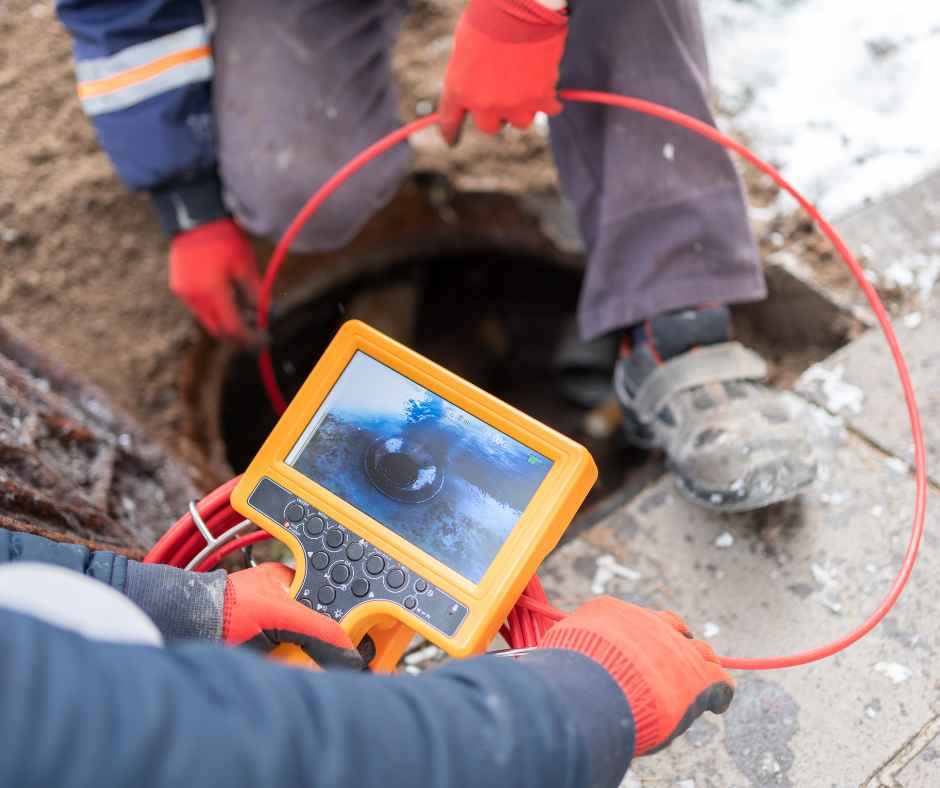Proudly Serving Rock Hill and Surrounding Areas
Why Is Your Water Heater Overheating? Common Causes and How to Prevent It

Having an overheated water heater can be more than just a nuisance—it can be a serious safety hazard. If your water feels scalding hot, or if your water heater is making unusual noises, it might be time to investigate what’s going on. In this blog, we’ll explore the most common reasons for water heaters overheating and offer practical tips on how to prevent it.
What Are The Main Reasons For A Water Heater To Overheat?
A water heater should operate within a safe temperature range to ensure hot water on demand without the risk of overheating. When it does overheat, several factors could be at play:
- Malfunctioning Thermostat: The thermostat is designed to control the temperature of your water heater. If it’s faulty, the heater may continue heating the water beyond the set temperature.
- Sediment Buildup: Over time, minerals in your water can accumulate at the bottom of the tank. This layer of sediment can insulate the heating element, causing it to overheat as it struggles to heat the water properly.
- Faulty Pressure Relief Valve: Water heaters have a pressure relief valve that releases pressure when the water gets too hot. If this valve is malfunctioning, the pressure can build up to dangerous levels, leading to overheating.
- High Water Pressure: If the water pressure in your home is too high, it can also cause your water heater to overheat. High pressure forces the water to heat up more quickly, which can lead to overheating.
How Does A Malfunctioning Thermostat Cause Water Heater Overheating?
The thermostat is one of the most crucial components of your water heater, responsible for regulating the temperature of the water. When the thermostat malfunctions, it may not accurately read the water temperature, causing the heater to stay on longer than necessary and heat the water too much.
There are a few ways a thermostat can malfunction:
- Stuck Thermostat: If the thermostat gets stuck in the “on” position, the heating element will continue to run, even if the water has already reached the desired temperature. This can lead to overheating, creating the risk of scalding hot water coming out of your faucets.
- Incorrect Temperature Setting: Sometimes, the thermostat isn’t the problem—it’s simply set too high. Water heaters typically come with a recommended temperature setting of around 120°F. Anything higher than this can not only cause your water heater to overheat but also increase the risk of burns.
To prevent overheating due to thermostat issues, make sure to:
- Regularly check and adjust the temperature setting on your water heater.
- Replace the thermostat if it’s malfunctioning or sticking in the “on” position.
Can Sediment Buildup Lead To Water Heater Overheating Problems?
Yes, sediment buildup is a common cause of water heater overheating. This problem occurs when minerals—such as calcium and magnesium—are present in your water and settle at the bottom of the tank over time. As the sediment builds up, it creates an insulating layer over the heating elements. This makes the water heater work harder to heat the water, leading to potential overheating.
Here’s how sediment buildup can cause problems:
- Overworking The Heating Element: When sediment surrounds the heating element, it must work overtime to heat the water. This excessive heating can lead to the element overheating, potentially causing it to burn out or malfunction.
- Reduced Efficiency: A water heater struggling to heat through sediment buildup will use more energy and be less efficient, which can result in higher energy bills and a shorter lifespan for your heater.
- Increased Pressure: The excess heat can cause the water to expand, increasing the pressure inside the tank. If this pressure isn’t relieved, it can cause the water heater to overheat or even become dangerous.
To prevent sediment buildup:
- Flush Your Water Heater Regularly: Sediment buildup can be managed by flushing your water heater at least once a year. This process removes the sediment from the tank and allows your heater to work more efficiently.
- Install a Water Softener: If your area has hard water, consider installing a water softener. It reduces the mineral content in your water, which helps prevent sediment buildup.
How Can Regular Maintenance Help Prevent Water Heater Overheating?
One of the best ways to prevent your water heater from overheating is to keep up with regular maintenance. If you do this often, you can increase your water heater’s efficiency and extend its life by fixing minor issues before they escalate.
Here are a few regular maintenance tasks that can help prevent overheating:
- Inspect The Thermostat: Regularly check the thermostat to ensure it’s set to the correct temperature and working properly. If it’s showing signs of wear or malfunction, it’s best to replace it as soon as possible.
- Flush The Tank: As mentioned earlier, flushing the tank at least once a year helps prevent sediment buildup, which can lead to overheating. If you’re in an area with hard water, you may need to flush your water heater more often.
- Check The Pressure Relief Valve: Test the pressure relief valve periodically to ensure it’s working properly. Simply lift the valve’s lever to release some water, then let it snap back. If water continues to leak or if the valve doesn’t work, it should be replaced.
- Inspect The Heating Element: Over time, heating elements can wear out, especially if they’ve been overworking due to sediment buildup. Replacing a damaged heating element can prevent further overheating issues.
Incorporating these maintenance tasks into your routine can help prevent the most common causes of water heater overheating. It also reduces the risk of costly repairs and ensures your water heater operates safely and efficiently.
While it’s concerning when your water heater becomes too hot, it’s usually a sign of a bigger problem like a broken thermostat or sediment accumulation. The bright side is that with routine upkeep and prompt repairs, you may avoid most of these issues. Your home’s hot water system can last for years with proper maintenance that includes checking on the parts of your water heater and fixing any problems as soon as they arise.
Contact a professional immediately if you notice that your water heater is overheating. Preventing your water heater from overheating and maximizing its lifespan is as simple as inspecting and maintaining it on a regular basis.
How Full Spectrum Plumbing Services Can Help Prevent Water Heater Overheating
At Full Spectrum Plumbing Services, we take pride in offering reliable solutions to help prevent your water heater from overheating and ensure it operates safely and efficiently. When it comes to thermostats, our team of trained experts has you covered. Our team can assess the problem with your water heater’s thermostat in no time and fix it or replace it so that it controls the temperature correctly again, avoiding the danger of overheating.
Overheating can occur if the water heater’s internal pressure builds up too much, which is why the pressure relief valve is so important. Our technicians inspect and, if needed, replace faulty valves to ensure your system is functioning safely.
To prevent future issues, we recommend signing up for our preventative maintenance plans. These regular maintenance services help detect and address potential problems before they escalate, ensuring that your water heater runs smoothly year-round. Trust Full Spectrum Plumbing Services to keep your water heater in top condition and free from overheating risks.
Schedule Your Water Heater Maintenance Today!
Don’t wait for your water heater to overheat and cause problems in your home. Full Spectrum Plumbing Services is here to provide expert care, from thermostat repairs to regular maintenance that ensures your system runs safely and efficiently. Contact us today to schedule a service appointment and keep your water heater in peak condition!
Recent Posts

Common Plumbing Problems Charlotte Homeowners Face Each Year

How Charlotte NC Residents Can Protect Their Homes From Winter Pipe Damage

How to Recognize a Sewer Line Problem Before It Damages Your Home
Have a Question?


